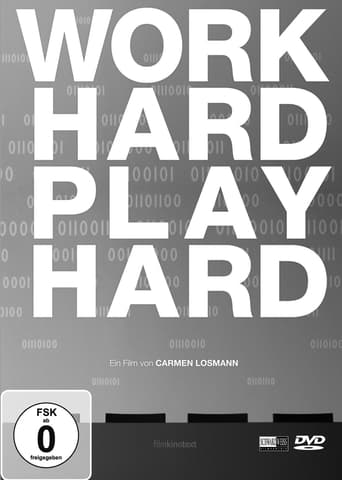Ingo Schwarze
The movie depicts one particular strategy for maximizing performance on the job that happens to be en vogue, in particular for the management of highly qualified, privileged workforces: Tuning all aspects of the working environment in such a way as to provide surrogates for all aspects of private life. At work, people shall feel at home and like to be there, shall feel passionate about their work and like to do it, shall develop a team spirit to the point of feeling among friends at work, shall trust their superiors and HR to the point of openly discussing the most intimate aspects of the development of their personality with them, shall identify with the company to the point of founding their very self-concept on their company role and career perspectives.Of course, for this concept to indeed maximize performance on the job, all aspects of making work seem like home and personal fulfilment need to have clear limits that, looking more closely, radically pervert the emotional concepts being exploited. You are supposed to feel at home, but never so much that you could ever relax completely - what kind of home is that? You are supposed to feel passionate about your work, but never so much that you ever follow your own, personal goals, rather the company goals have to direct all your efforts - what kind of passion is that? You are supposed to fully trust the company to optimally nurture your talents, personality, and career, knowing that they will drop you as soon as others prove more useful for them - what kind of trust is that? And so on and on...These techniques are presented in a potpourri of supposedly documentary scenes so gross and glaring that the atmosphere of the movie regularly verges caricature - or rather, real-life satire, as there can be little doubt that such things do really happen.Understanding the mechanisms at work, their means-end rationality and functionality as well as their inherent contradictions, is severely hampered by a tendency of the movie to dwell on the surface, in particular when showing long stretches of the typical new-speak management jargon that is regularly pronounced to obscure what is actually happening in a company, spreading a positive mood by making a lot of euphemistic words without actually saying anything at all. Besides, at least according to my taste, various scenes are quite long drawn-out, reducing artistic quality as well.So i guess in the end, most spectators will be left in a state of diffuse indignation - "It's revolting how those management swine are manipulating and exploiting their staff!" - but the movie is so bewildering and confusing that few people will, right after seeing it, be able to quite understand the essence of the concepts shown. Let alone be able to come up with counter-strategies... What might be done about all this, and by whom, would be an interesting question that, unfortunately, the movie hardly even alludes to.If you are interested in the consequences of modern human resource management techniques, you should probably go have a look at this one, but without expecting too much. In any case, don't expect any help for countering them.

